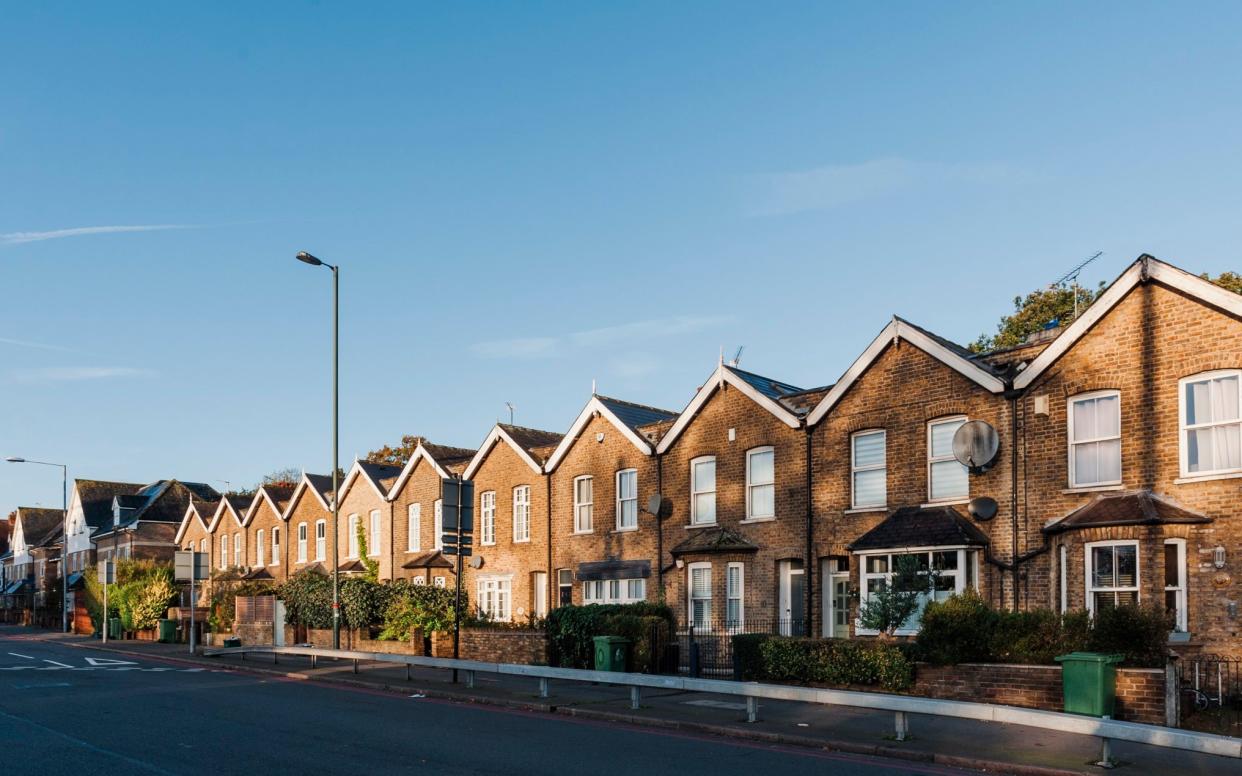‘Introduce double-locked rent caps in England’, says Labour report

Rents should be capped for tenants who cannot afford rising costs, according to a report commissioned by Labour.
The policy was recommended by Stephen Cowan, the Labour leader of Hammersmith and Fulham council, in a landmark report on the housing crisis.
It said a “double lock” should be introduced, linking rent increases to the lowest of local wage growth and inflation and that rents should only be allowed to increase once a year, with tenants receiving at least four months’ notice.
But landlord lobby groups warned a cap could have an adverse effect on the rental market, driving out landlords and pushing rents even higher.
Almost half – 45pc – of evictions are now linked to landlords selling up, according to the National Residential Landlords Association. The property body said tax crackdowns and rent reforms are driving landlords out of the market, leading to fewer homes for tenants.
The report, which is due to be published on Wednesday, also recommends that a “National Landlords Register”, updated annually, should be created.
Mr Cowan, author of the report said: “The lower end of the sector is blighted with very low standards, high evictions and rogue landlords and agents. Our report offers a practical series of measures to professionalise the sector.
“These measures would provide renters with greater security and provide good landlords with the stability they need to run their businesses.”
Rent controls have remained popular with Labour grandees despite evidence suggesting that they tighten supply and push up prices.
In London, Mayor Sadiq Khan has promised to build 6,000 rent-controlled homes for key workers, who will pay a third of the average wage. In Manchester, Mayor Andy Burnham has also previously called for a rent freeze.
But in Scotland, tenants have been hit with the highest annual rent growth of any UK nation since Nicola Sturgeon introduced a rent cap and eviction ban in September 2022.
One in 10 landlords are expected to sell up this year as a result of tighter regulation, according to a survey by the National Residential Landlords Association Trade body. Accountancy firm PwC warned that an exodus of private landlords could be damaging for Britain’s economy.
Research conducted by the company found that a 10pc exodus of small and medium landlords from the private rental sector would wipe out £4.5bn and 39,000 jobs.
Michael Gove, the secretary of state for housing, last year warned the House of Commons that controls “are proven to reduce supply overall, and a reduction of supply on the scale that an intervention of the kind that he puts forward would only increase rents and reduce the capacity of people to be able to live in the private rented sector”.
A spokesperson for the NRLA said: “We will study the details of the review carefully once it is published. However, we note, and welcome, Labour’s concern about the impact rent controls would have on the supply of rental properties.
“In the end, as the International Monetary Fund has made clear, increasing supply is by far the best way to ensure rents are affordable.”
Matthew Lesh, of the Institute of Economic Affairs think tank, said: “Rent controls are always and everywhere a disaster. Scotland tried a cap on rent increases for existing tenancies. The result was landlords significantly increasing rents on new tenancies, which jumped by 14pc in the year to September 2023.
“It has become more difficult for new tenants to find somewhere to live, with the average search time increasing from 12 to 16 weeks. There are reports of landlords pulling their properties from the market and spending less on maintenance and improvements.
“The only solution to the housing crisis is to fix Britain’s broken planning system so that enough homes can be built where people want to live. This fiddling will only make things worse.”
Rent controls have been introduced in the UK before. In 1915, rents were restricted to the levels seen in August 1914, in order to stop wartime profiteering. Similar restrictions were introduced in 1939, and remained in place until 1968.
In the latter half of the twentieth century, many countries which had previously had strong controls moved to a more flexible system, including England, Finland, and Norway.
Other countries and states, such as the Netherlands, Germany, Sweden and New York have long-standing controls, and in 2019, California and Oregon introduced state-wide edicts.
Last year, German chancellor Olaf Scholz was reported to be considering a three-year rent freeze.
A Labour spokesman said: “While we do believe action needs to be taken to protect renters and rebalance power, rent controls are not Labour Party policy as we remain mindful of the risk they could pose to the availability of rental properties and the harmful impacts any reduction in supply would have on renters.
“In government, Labour would act where the Conservatives fail to ensure fairness and security for renters, immediately abolishing section 21, ending tenant bidding wars and extending Awaab’s law to the private rented sector.”
A spokesperson for the London Renters Union said: “Millions of renters are being pushed into poverty by a worsening affordability crisis. We urgently need rent controls that go beyond simply curbing the most excessive rent hikes.
“We need regulations that are linked to the property, rather than the tenancy, and work to make renting more affordable over time for everyone.
“Both of the major parties’ plans around house building are unlikely to bring the cost of renting down when profit-seeking landlords still have the power to charge whatever they want, and renters cannot wait decades for more social housing to be built. Comprehensive rent control can make a difference now alongside a longer-term investment in social housing.”


